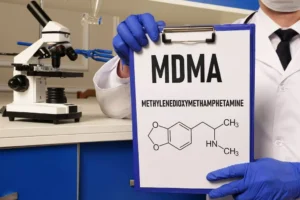
My last blog post took us back some 4 billion years to set a foundation for deconstructing illness and disease. My intention was to build on that foundation and talk further about the evolutionary molecular and cellular mechanisms that exist in us today and determine whether we are diseased and ill versus healthy and well. My trajectory was to move from physical to mental to social, and then to spiritual illness and disease. However, given the times we are in, I find myself compelled to vault forward to the spiritual. Spirituality in recovery is a lifestyle based on having a healthy attitude and promoting a mindfulness that helps us to find the meaning and sacredness that was lost in our lives.
- As overwhelming as I’m sure this all may seem for someone who’s either never had a spiritual connection, or been disconnected for years, I’d like to assure you it’s not as formidable as it may seem.
- In conclusion, addiction is spiritual in nature and must be treated as such.
- When the spiritual malady is overcome, we straighten out mentally and physically.
- However, no one is required to be a Christian to attend CR.
- The difference with CR is that we specifically acknowledge Jesus Christ as the Higher Power that can restore us.
- Where had we been selfish, dishonest, or inconsiderate?
What You Need to Know About Spiritual Illness and Disease
We claim spiritual progress rather than spiritual perfection. The great psychiatrist Carl Jung called this a ‘low level thirst for wholeness – for union with God’. In our addictions, we tried to quench our soul-thirst with fleeting pleasures.
Join the Mailing List
This spiritual transformation in recovery gives us hope, strength, and a joyous life. The best life coaching approach imaginable can have but modest effects, if at the end of the coaching sessions, the client returns to a life that has no meaning. If we keep God at the center of our life, we will remain at the center of the power we need to live. Addiction is an illness that affects us mentally, physically, and spiritually. We can only recover by having meaning in our lives and by being guided by Someone other than ourselves. It is not so much that spirituality influences treatment outcomes but rather how a person begins to embrace a spiritual life.
- Oldfield ultimately reviews the historical “seven deadly sins” and what Christian tradition suggests “fully aliveness” looks like with respect to each.
- It is characterized by its unhealthy manifestations in the biological, psychological, social and spiritual spheres of a person’s life.
- Finally, someone explained to me that those things are not the insanity that the Big Book talks about; nor are those things why the alcoholic’s life becomes unmanageable.
- Many of us had moral and philosophical convictions galore, but we could not live up to them even though we would have liked to.
- As we felt new power flow in, as we enjoyed peace of mind, as we discovered we could face life successfully, as we became conscious of His presence, we began to lose our fear of today, tomorrow or the hereafter.
- Some of us are very comfortable embracing spirituality, but for others, it feels weird or uncomfortable.
Take Your First Step To Recovery
These are our thought suppressions and emotional repressions that also bias the system towards threat physiology. According to the Big Book authors, these are the recognizable benchmarks that tell us we are having a spiritual experience or awakening. “As we understood him” — which means when I speak about God, I am really referring to my own experience, which is all I know — it has been revealed to me individually. If you have not had sex, you might understand it intellectually, you may have even watched a movie about it, but the personal experience in unknown–it is alien. But once you have had sex, you now have recognizable benchmarks to identify the experience. The same holds true for identifying what a relationship with God or the Higher Power is like.
Contact Your First Step’s National Hotline

And—as many of us here in this room know—it’s not long until those desires are running our lives. So let’s take a look at the questions we can ask ourselves to help us build our spiritual inventory list. We’re going to look specifically at four areas of our lives. In this way we tried to shape a sane and sound ideal for our future sex life.

The Big Book’s Answer to Relapse Prevention
- It must be realized that we all desire a sense of spirituality.
- This spiritual transformation in recovery gives us hope, strength, and a joyous life.
- In this book you read again and again that faith did for us what we could not do for ourselves.
Lack of clean soil, water, air, and lack of nutritious food are a threat to us. There are a lot of physical threats that can flip our physiology into a defense state. In spiritual malady conclusion, addiction is spiritual in nature and must be treated as such. By doing this, we holistically treat the whole person in order to effect treatment outcomes.
Financial threat and injury have similar effects to physical threat and injury, too. So lets talk about taking our spiritual inventory. An inventory is just a list—in our case a list of people and events that have contributed to our issue. A really effective tool for building that list is to ask ourselves questions.

Convergence of Faith and Science

Deixe um comentário